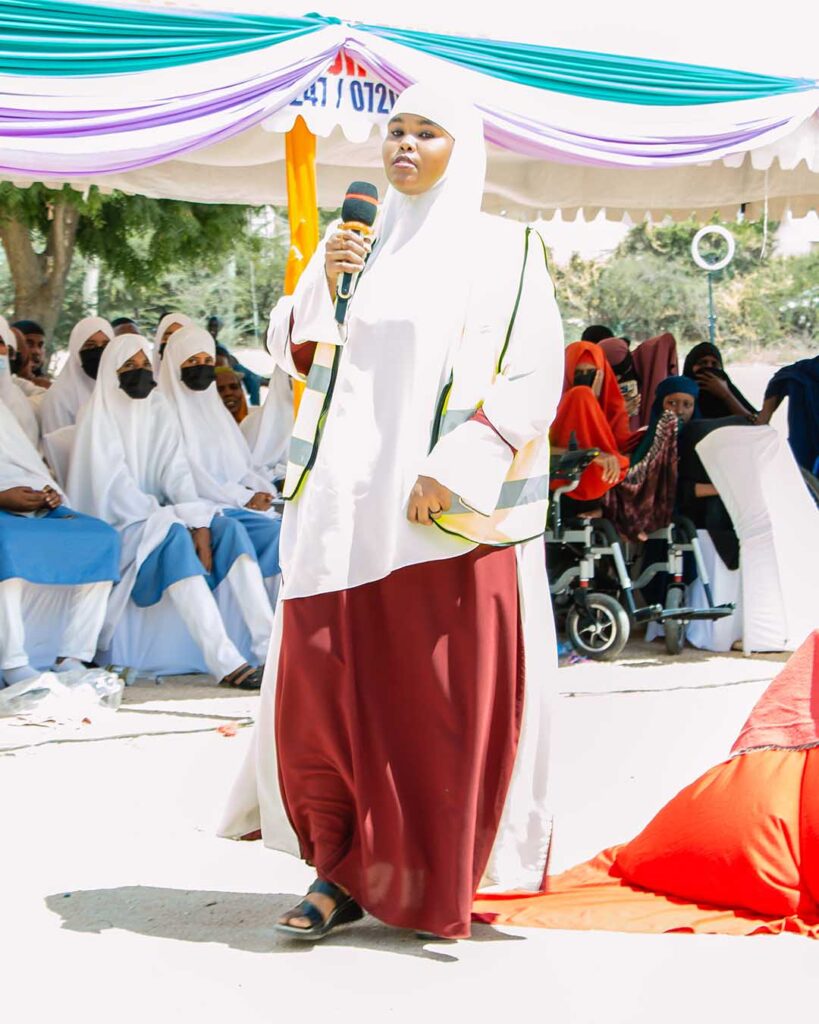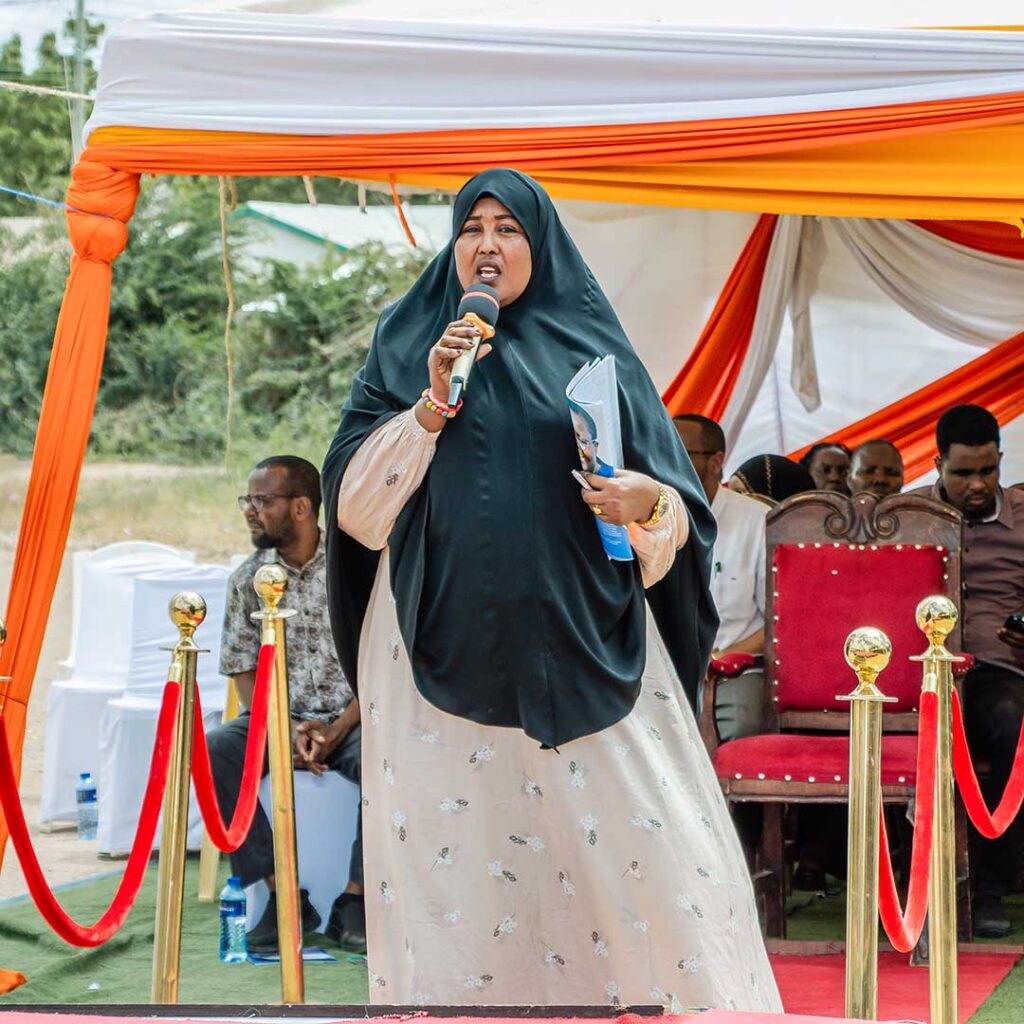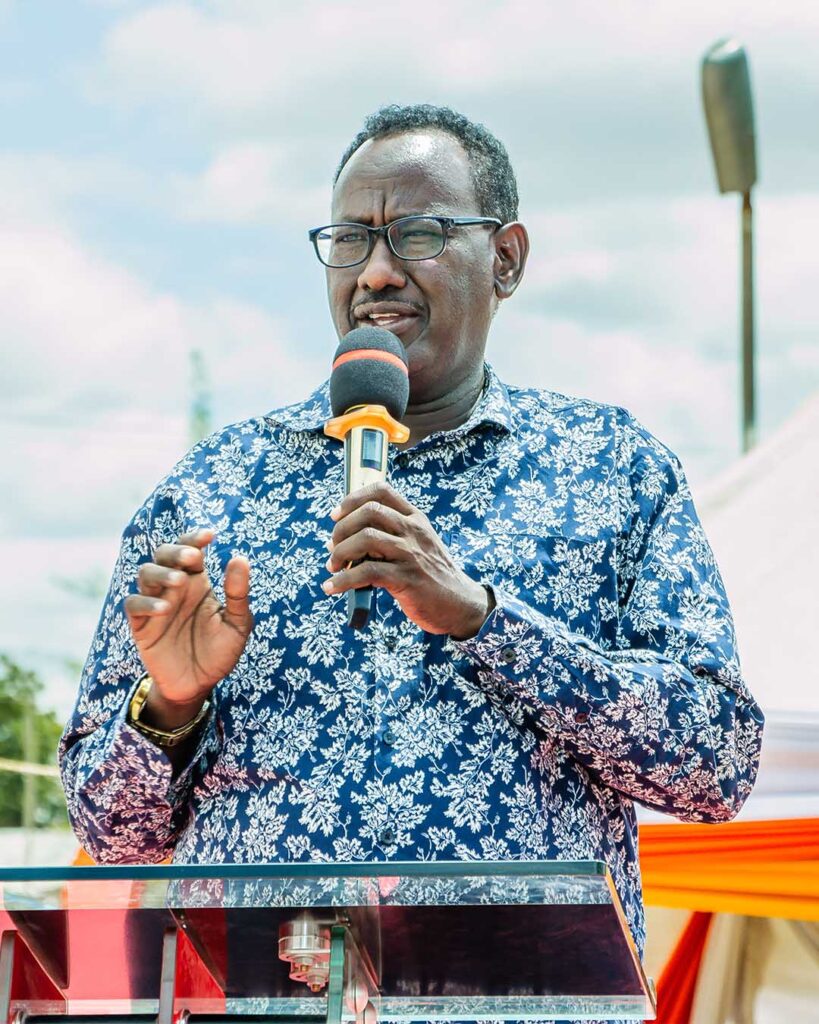Digitally Enabled Gender Equity and Social Inclusion for Disadvantaged and Excluded Communities in Kenya
Overview
Since 2019, ACWICT has played a crucial role in advancing digital inclusion. User Needs Assessment on locally relevant digital content for
underserved farmer community conducted between 2019-2020 in Laikipia County, Kenya revealed that only 1% of farmers used digital
agricultural resources, highlighting a major gap in the digitalization of agriculture. In response, Digital Services in Agriculture (DSA) Phase I & II
(2020-2022) projects trained 615 extension ocers and over 38,000 farmers. The third phase of the project (DSA III) implemented in 2023/2024
expanded training to all 47 counties in Kenya, reaching over 84,314 small holder farmers through 15,349 Community Digital Champions trained by the programme to cascade the training to farmers. Other achievements included
- Gender equity and inclusion (67.2% women);
- Farmers average monthly income increased from $80 to $134;
- Awareness on digital agriculture to 4 million
- Access and use of aordable internet, relevant digital content, and platforms; and e) creation of knowledge products (policy briefs, conference papers and journal publications.


This current phase (2024-2027) scales up these eorts, focusing on marginalized communities in four counties. Funded by the UK Digital Access Programme (DAP), and supported by key government entities, including the ICT Authority, Ministry of ICT, Ministry of Youth Aairs, and Ministry of Agriculture, the “Digitally Enabled Gender Equity and Social Inclusion for Disadvantaged and Excluded Communities in Kenya” project aims to bridge the digital divide by imparting foundational and basic digital skills competencies, awareness creation on digital development benefits and cyber hygiene; digital government services, digital services in agriculture; and facilitating affordable internet access for marginalized groups. Implemented by the African Centre for Women, Information, and Communications Technology (ACWICT) this initiative builds on previous successes to promote digital inclusion and socio-economic empowerment. The project will be implemented within a three (3) year period.
Target Beneciaries & Geographic Focus
It will be implemented in Garissa, Wajir, Turkana, and Elgeyo Marakwet counties, where digital exclusion remains a signicant challenge. The project focuses on empowering as Community Digital Champions:
Women and girls
Older adults
Smallholder farmers
Persons with disabilities
Youth (18-35 years)
Approach
The project aims at bolstering Social economic empowerment among digitally excluded persons, including women and girls, senior
citizens/older adults, small-holder farmers, and persons with disabilities in Kenya through access to digital services including digital
services in agriculture, and government services in a safe and secure environment; foster gender equity and promote social Inclusion leading to improved incomes, food security, livelihoods and alleviation of socio-economic disparities. To achieve these goals, the project will leverage a combination of Training of Trainers (ToT) programs, youth-led Community Digital Champions (CDCs), blended learning approaches, and partnerships with ISPs, government agencies, and private sector players. It
will focus on enhancing access to locally relevant digital content, including digital agricultural resources and e-government services, as well as promoting aordable internet connectivity and awareness creation. Additionally, the project will contribute to policy advocacy through evidence-based research.

Key Outcomes & Measuring Success
- 200,000 digitally excluded persons/citizens trained in foundational and basic digital skills competencies
- 5000 CDCs refreshed/trained in foundational and basic digital skills including articial intelligence uency (AI Fluency) and green digital skills to cascade to the 200,000 digitally excluded persons/citizens
- Improved food security and nutrition because of application of good agricultural practices, access to digital services in agriculture, climate adaptations and mitigation for increased
- 500 of high potential young women and vulnerable girls with digital employability skills, nancial literacy and entrepreneurial training; mentorship and psychological mental health wellness
- 5 milllion citizens and/or stakeholders reached with sensitisation messages through social media (short educational video clips); local/vernacular radio / TV stations); and partner digital platforms on digital developmental benets including government services, digital services for agriculture and climate change adaptation and mitigation, emerging technologies (including articial intelligence) and available digital jobs support, with a 70% placement rate earnings and better livelihoods
- Partnerships and collaborations formed among key stakeholders in the digital services in agriculture, and digital employability landscape for enhanced program delivery
- 6 knowledge products (2 policy briefs, 2 conference papers and 2 journal articles) developed in readiness for publishing in reputable outlets and platforms

